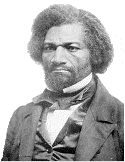We
had a wonderful four-week study on the Gospel of John. We wish to thank those
of you who were able to come. I was personally very moved by Bert’s insight into
the political context of the day and how subversive Jesus was, but also how wise
he was…. I have never seen the parallels of lady wisdom from Proverbs 8 and how
Jesus was portrayed in this book. I found it very empowering. Thank you
Bert!
On the final week, I was able to share a few "subversive" Quaker ideas about John's Gospel, based on my experience and what I learned from studying the Quaker theologian Howard Brinton:
1) The Inward Light of Christ is in everyone (John 1:9), thought not everyone recognizes or acts upon it. This means we can find the Light in those of other religions, and even our "enemies."
2) If Christ is the vine and we are branches (John 15:5), we can be one with Christ and with God so there isno need for hierarchies, or for leaders, in Christ's beloved community: we can have direct access to Christ/God, just as a branch has direct access to the vine.
3) We can become "friends" of God or Christ if we are willing to sacrifice our egos on the altar of love (John 15:15).
In addition to addressing the questions below, and having a very lively discussion, we sang two popular Quaker songs based on the Gospel of John, both composed by Sydney Carter: "Lord of the Dance" and "The George Fox Song." Cody Love Lowry, a young Friend, led us in singing these songs, accompanied by his ukulele. Our four-week bible study ended on an upbeat note, and a good time was had by all.
Howard Haines Brinton (1884–1973) was an author, professor and director
of Pendle Hill (a Quaker center for Study and Contemplation) whose work
influenced the Religious Society of Friends movement for much of the 20th
century. His books ranged from Quaker journal anthologies to philosophical and
historical dissertations on the faith, establishing him as a prominent
commentator on the Society of Friends. His most important work was Friends for 300 Years (published in
1952 to commemorate the 300th anniversary of Quakerism), which is
still the most widely read and influential book about Quakerism among liberal,
unprogrammed Friends. Brinton was a student of Rufus Jones, trained in physics
as well as philosophy and religion. During his final years he wrote three
seminal pamphlets examining the theology/philosophy of John's Gospel from a
Quaker perspective. The following handout is based on ideas by Howard Brinton
and examples from my own experience and readings.
“The true light that enlightens everyone was coming into the world” (John 1:9).
The so-called “Quaker text” (John 1:9) was interpreted by Quakers to mean that the Christ light/logos shines, with varying degrees of intensity, in everyone, though many do not recognize or follow it. According to Quakers, Jesus is the most complete expression of the Christ light/logos (as George Fox said, Christ possessed this light “without measure”), but glimmerings of this light can be found in every person and religion (e.g. “the Golden Rule”).
Practical applications: George Fox called Quakers to “answer
[respond to] ‘that of God’ in everyone,” whether Christian, pagan, Jewish,
Muslim, Buddhist, etc. by being “patterns and examples” of Christ’s love.
Quakers believe that if we “live in the power and life that
takes away the occasion of war,” we should never kill anyone through war,
public execution, or other means because everyone, even someone who hates and
persecutes us, has the Christ light (“that of God”) within him or her.
Other biblical passages used by Brinton and George Fox to explain Quaker Universalism: “the gospel which ye have heard and which was preached in [less exactly rendered ‘to’] every creature which is under heaven” (Col 1:23) and “for the grace of God that bringeth salvation hath appeared to all” (Titus 2:11).
“I am the vine and you are the branches. Those who remain in me, and I in them, will produce much fruit. For apart from me you can do nothing.” (John: 15:5)
What do you think that Jesus is saying about the relationship between Christ and his followers by using the metaphor of a vine? How is this relationship different from the way that the relationship between God and human beings is conventionally/traditionally understood? What kind of community/society is implied by this “organic” metaphor? How is this kind of community “subversive” or counter to the dominant culture?
Early Friends practiced this kind of love in powerful ways. During the 17th century, a time when over 15,000 Quakers were imprisoned for their beliefs, and many died in prison, 164 Friends signed this petition and sent to Parliament in 1659:
We, in love to our brethren that
lie in prisons and houses of correction and dungeons, and many in fetters and
irons, and have been cruelly beat by the cruel gaolers, and many have been
persecuted to death, and have died in prison, and many lie sick and weak in
prison and so straw, so we, in love to our brethren, do offer up our bodies and
selves to you, for to put us as lambs into the same dungeons and houses of
correction....For we are willing to lay down our lives for our brethren, and to
take their sufferings upon us
How do we in our current age demonstrate our
commitment to the kind of love that Christ commanded? How do we become “friends
of God” as well as genuine friends of each other?


